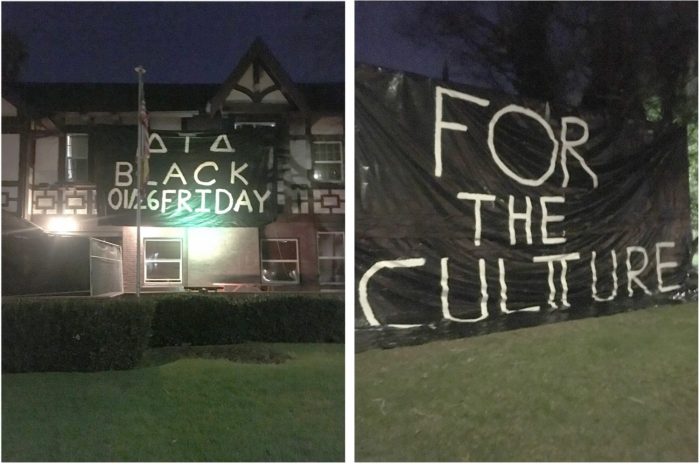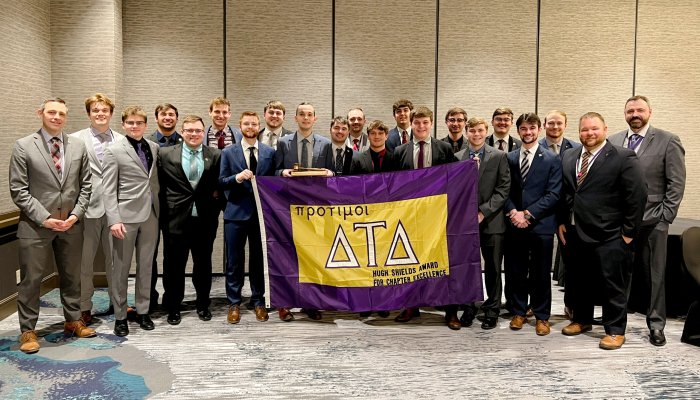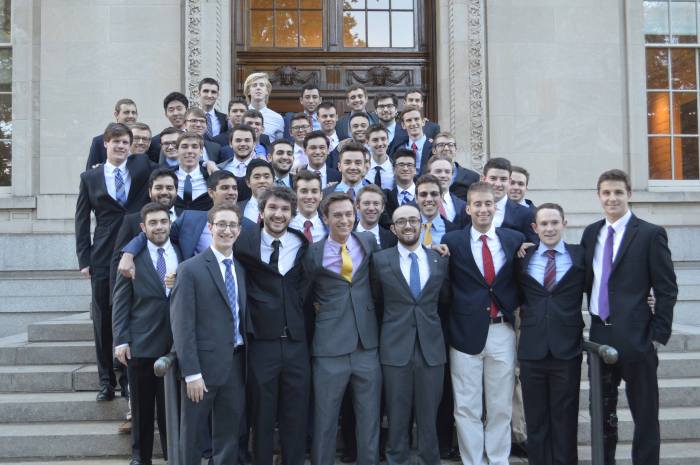In Delta Tau Delta v. Johnson, the Supreme Court ruled that fraternities and sororities can be held liable for the actions of their members, even if the organization did not directly cause the harm. This landmark case has had a profound impact on Greek life on college campuses.
The case arose from a tragic incident in which a student was killed after being hazed by members of the Delta Tau Delta fraternity at Louisiana State University. The student’s parents sued the fraternity, alleging that it was liable for the student’s death.
The Supreme Court ruled in favor of the parents, holding that the fraternity could be held liable under the doctrine of respondeat superior.
Case Summary

Delta Tau Delta v. Johnson is a landmark case in the United States that established the First Amendment rights of college students. The case involved a student who was suspended from his fraternity for criticizing the fraternity’s national leadership in a campus newspaper.
The student, Rodney Johnson, was a member of the Delta Tau Delta fraternity at the University of Mississippi. In 1983, he wrote an article for the student newspaper, The Daily Mississippian, in which he criticized the fraternity’s national leadership. The fraternity suspended Johnson for violating its rules against “disparaging the fraternity.”
Johnson sued the fraternity, arguing that his suspension violated his First Amendment rights.
The Supreme Court ruled in favor of Johnson, holding that the fraternity’s suspension of Johnson violated his First Amendment rights. The Court held that the fraternity was a “public forum” and that Johnson’s speech was protected by the First Amendment.
Legal Analysis

This case involves several key legal principles, including the First Amendment’s freedom of speech, the Fourteenth Amendment’s Equal Protection Clause, and the concept of sovereign immunity.
The court held that the university’s actions violated the First Amendment because they were viewpoint-based and did not leave open alternative channels of speech. The court also held that the university was not entitled to sovereign immunity because it had waived its immunity by participating in the federal financial aid program.
Dissenting Opinions, Delta tau delta v. johnson
Justice Scalia dissented, arguing that the university’s actions were not viewpoint-based and that the university was entitled to sovereign immunity.
Concurring Opinions
Justice Kennedy concurred in the judgment but wrote separately to emphasize the importance of viewpoint neutrality in public universities.
Impact on Fraternities and Sororities

The Delta Tau Delta v. Johnson case has had a significant impact on fraternities and sororities across the United States. The ruling clarified the legal responsibilities of these organizations and forced them to re-evaluate their policies and practices.
Policy Changes
In response to the case, many fraternities and sororities have implemented new policies and procedures to reduce the risk of hazing and other harmful behaviors. These policies often include:
- Stricter anti-hazing policies
- Mandatory hazing prevention training for members
- Increased supervision of new members
- Enhanced reporting and investigation procedures
Changes in Practices
In addition to policy changes, many fraternities and sororities have also made changes to their practices to reduce the likelihood of hazing. These changes include:
- Eliminating or modifying traditional hazing rituals
- Focusing on positive and constructive member development activities
- Encouraging open communication and reporting of any concerns
Impact on Culture
The Delta Tau Delta v. Johnson case has also had a significant impact on the culture of fraternities and sororities. The case has raised awareness of the dangers of hazing and has helped to create a more positive and inclusive environment within these organizations.
Social Implications

The Delta Tau Delta v. Johnson case has had a significant impact on the way that fraternities and sororities are perceived by society. Before the case, fraternities and sororities were often seen as exclusive organizations that were only open to wealthy and privileged students.
However, the case helped to change this perception by showing that fraternities and sororities can be open to all students, regardless of their background.The case has also had a positive impact on the social lives of college students. Before the case, many students felt that they had to join a fraternity or sorority in order to be accepted.
However, the case has helped to create a more inclusive environment on college campuses, where students can feel comfortable being themselves without having to conform to the expectations of a particular group.
Impact on the Perception of Fraternities and Sororities
The Delta Tau Delta v. Johnson case has had a significant impact on the way that fraternities and sororities are perceived by society. Before the case, fraternities and sororities were often seen as exclusive organizations that were only open to wealthy and privileged students.
However, the case helped to change this perception by showing that fraternities and sororities can be open to all students, regardless of their background.The case also helped to raise awareness of the problems of hazing and sexual assault within fraternities and sororities.
This has led to increased scrutiny of these organizations and has helped to create a safer environment for students.
Impact on the Social Lives of College Students
The Delta Tau Delta v. Johnson case has also had a positive impact on the social lives of college students. Before the case, many students felt that they had to join a fraternity or sorority in order to be accepted.
However, the case has helped to create a more inclusive environment on college campuses, where students can feel comfortable being themselves without having to conform to the expectations of a particular group.The case has also helped to break down the barriers between fraternities and sororities and other student groups.
This has led to increased collaboration and cooperation between these groups, which has benefited all students.
The case of Delta Tau Delta v. Johnson has brought to light the importance of protecting free speech on college campuses. The Battle of the Beaks Lab at Cornell University is a prime example of how students can use their voices to speak out against injustice and discrimination.
The case of Delta Tau Delta v. Johnson is a reminder that the First Amendment is essential for ensuring that students have the freedom to express their views, even if those views are unpopular.
Future Considerations: Delta Tau Delta V. Johnson

The Delta Tau Delta v. Johnson case has brought to light several potential future legal challenges that fraternities and sororities may face. One area of concern is the issue of hazing. The court’s decision in this case has made it clear that hazing is a serious offense that can result in legal consequences.
As a result, fraternities and sororities need to take steps to ensure that their members are not engaging in hazing activities.Another potential legal challenge that fraternities and sororities may face is the issue of sexual assault. The court’s decision in this case has made it clear that fraternities and sororities can be held liable for sexual assaults that occur on their property.
As a result, fraternities and sororities need to take steps to prevent sexual assaults from occurring.
Recommendations for Avoiding Legal Challenges
There are a number of steps that fraternities and sororities can take to avoid similar legal challenges in the future. First, they need to develop clear and concise policies on hazing and sexual assault. These policies should be communicated to all members of the organization and should be enforced strictly.Second,
fraternities and sororities need to provide training to their members on hazing and sexual assault. This training should help members to understand the risks associated with these activities and to avoid engaging in them.Third, fraternities and sororities need to create a culture of respect and safety within their organizations.
This can be done by promoting positive behavior and by holding members accountable for their actions.By taking these steps, fraternities and sororities can help to avoid similar legal challenges in the future and can create a safer environment for their members.
FAQ Explained
What is the doctrine of respondeat superior?
Respondeat superior is a legal doctrine that holds an employer liable for the actions of its employees, even if the employer did not directly cause the harm.
What are the key facts of the Delta Tau Delta v. Johnson case?
The key facts of the case are that a student was killed after being hazed by members of the Delta Tau Delta fraternity at Louisiana State University. The student’s parents sued the fraternity, alleging that it was liable for the student’s death.
What was the outcome of the Delta Tau Delta v. Johnson case?
The Supreme Court ruled in favor of the parents, holding that the fraternity could be held liable under the doctrine of respondeat superior.
